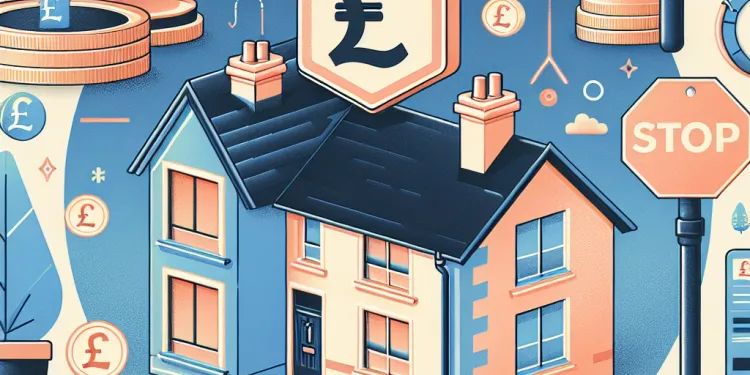
Find Help
More Items From Ergsy search
-
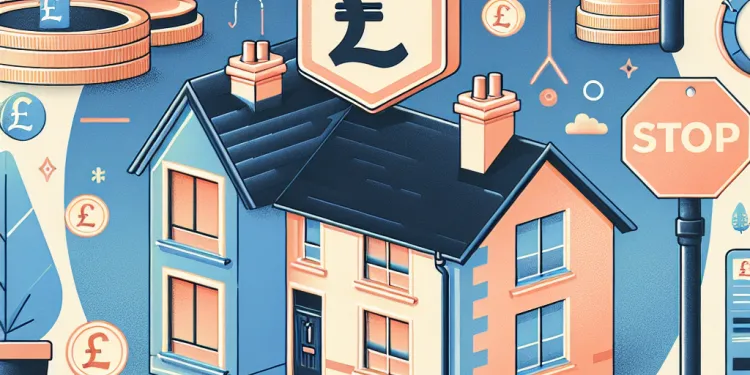
Can I stop an eviction if I catch up on rent payments?
Relevance: 100%
-
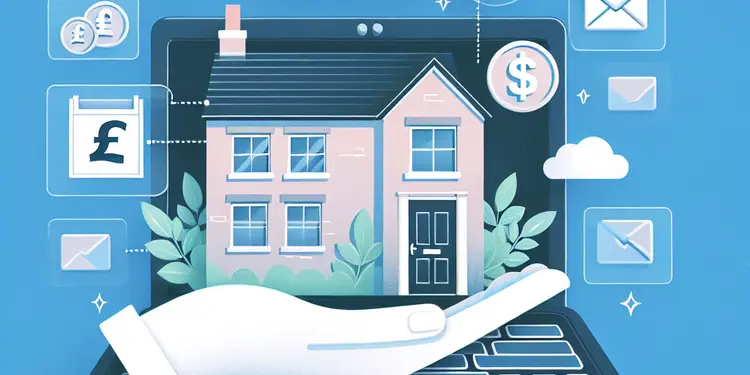
Is there assistance available for rent or mortgage payments?
Relevance: 66%
-
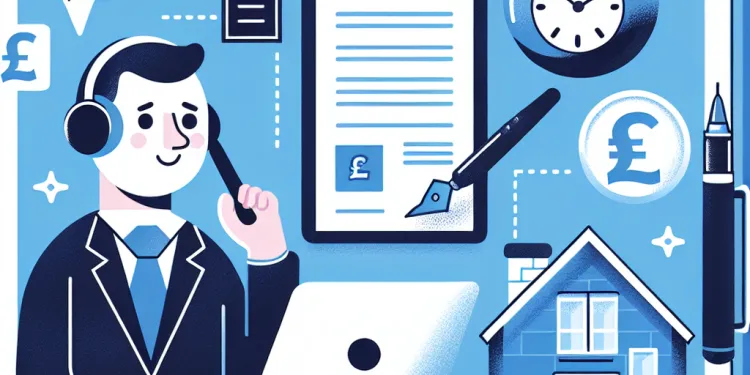
Can I negotiate with my landlord to avoid eviction?
Relevance: 62%
-
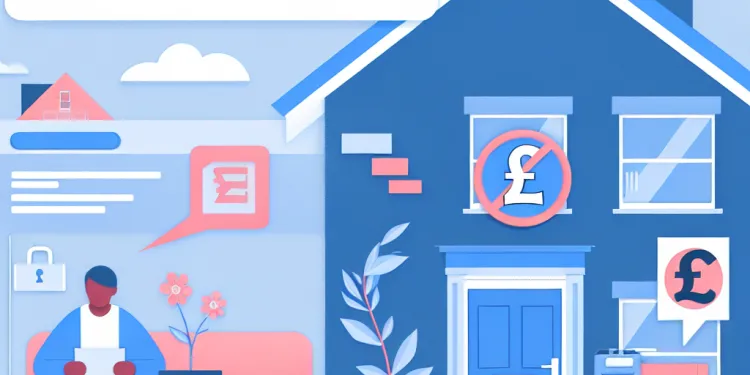
What can I do if my landlord wants to evict me?
Relevance: 61%
-

Can eviction affect my credit score?
Relevance: 60%
-
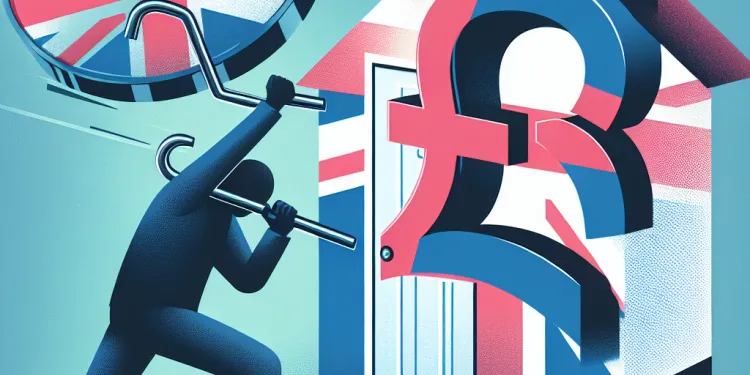
How can I contest or challenge the eviction?
Relevance: 59%
-
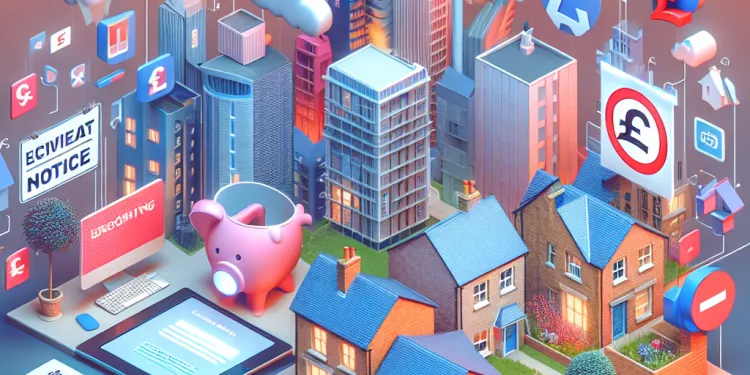
What should I do if I receive an eviction notice from my landlord?
Relevance: 58%
-

Does filing for bankruptcy stop an eviction?
Relevance: 58%
-
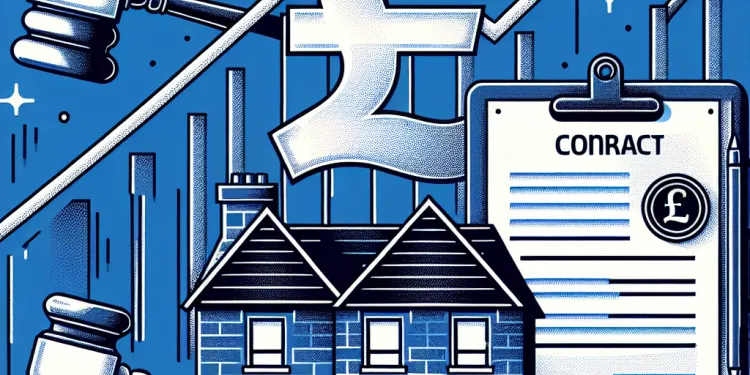
Are there changes to the eviction process?
Relevance: 57%
-

Are there any government programs that can help me avoid eviction?
Relevance: 57%
-
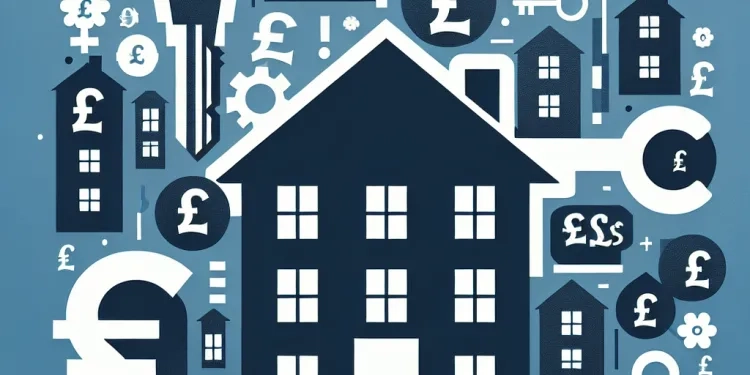
What are the consequences of having an eviction on my record?
Relevance: 56%
-

How can I prepare for an eviction court hearing?
Relevance: 54%
-

What are my rights during the eviction process?
Relevance: 50%
-
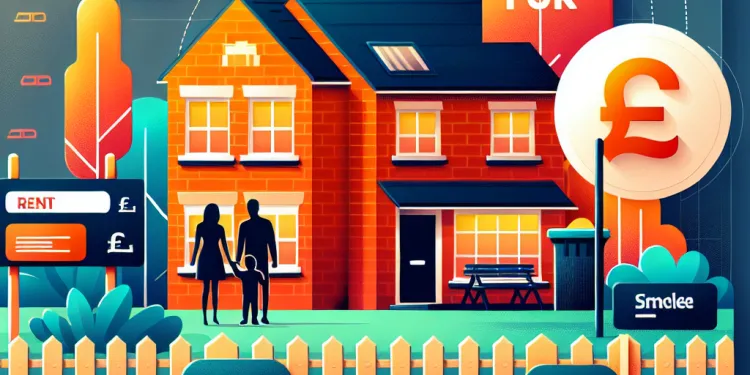
Can a landlord evict me for complaining about property conditions?
Relevance: 49%
-

How does the reform impact renting costs?
Relevance: 48%
-

How long do I have to move out after receiving an eviction notice?
Relevance: 47%
-
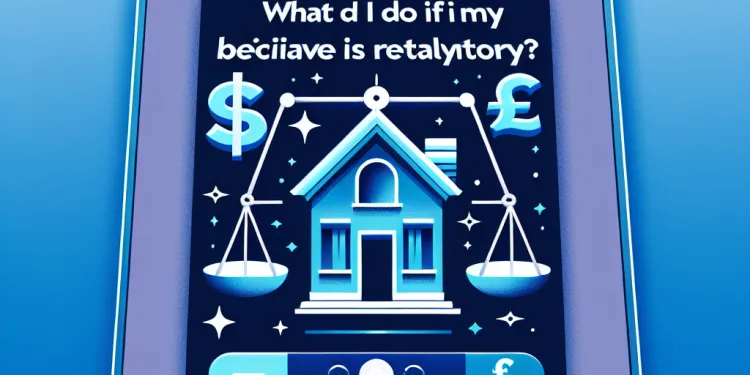
What can I do if I believe my eviction is retaliatory?
Relevance: 46%
-

What is the relationship between rising rents and housing benefit cuts?
Relevance: 45%
-
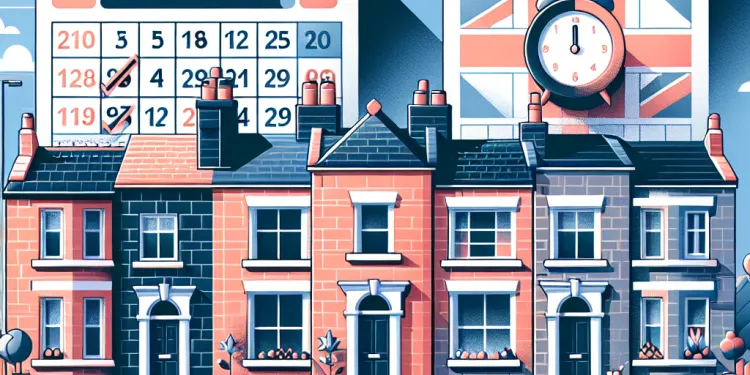
What happens if I stay beyond the eviction deadline?
Relevance: 45%
-

What should I do if I can't afford a lawyer for the eviction process?
Relevance: 45%
-

Can my landlord evict me without providing a reason?
Relevance: 44%
-
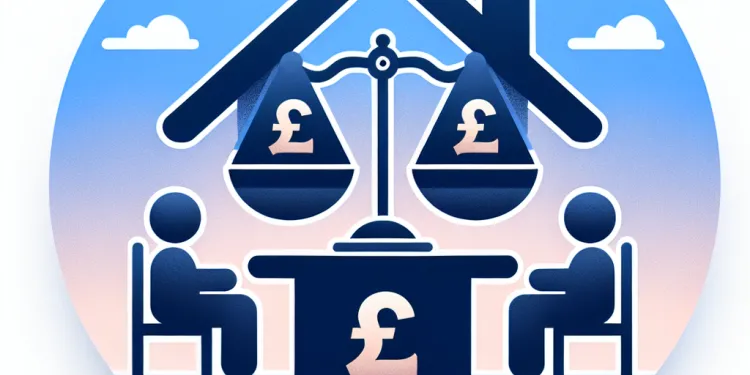
Is mediation an option to resolve eviction disputes?
Relevance: 42%
-

Can mobility equipment be rented?
Relevance: 42%
-

How do I find alternative housing quickly if evicted?
Relevance: 41%
-
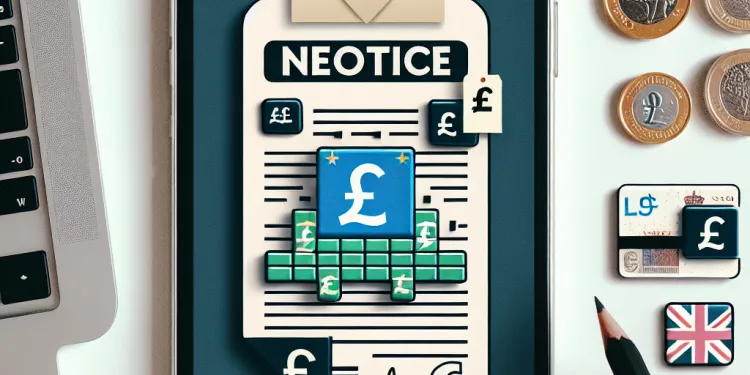
Has the notice period for eviction changed?
Relevance: 41%
-
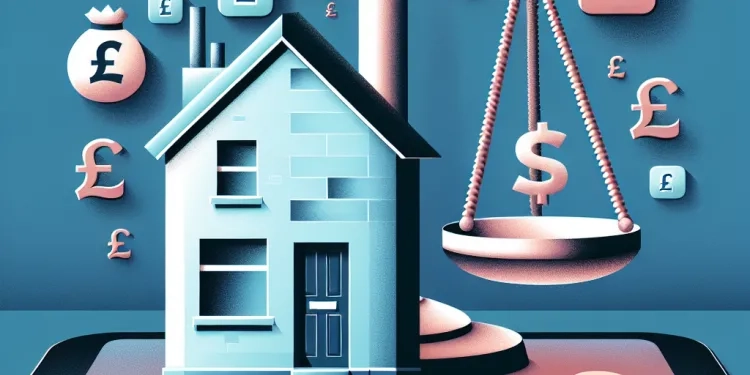
Can I appeal a court's eviction decision?
Relevance: 41%
-

What can tenants do if they are affected by the cuts?
Relevance: 40%
-
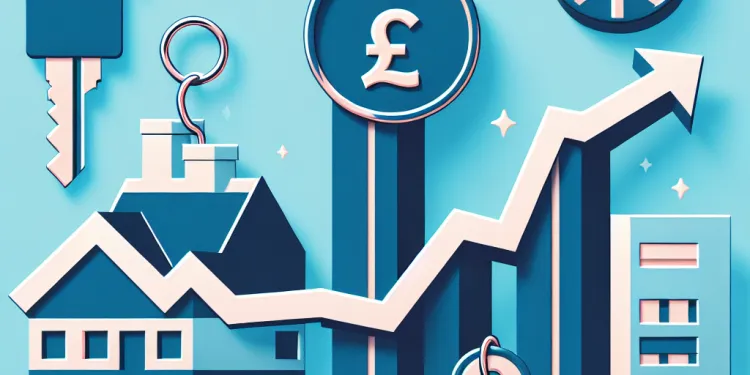
What are the proposed Cuts to Housing Benefits Amid Rising Rents?
Relevance: 40%
-
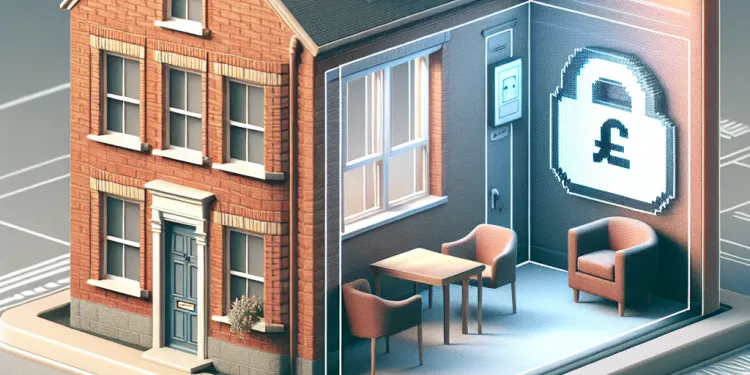
Can a landlord lock me out or remove my belongings to evict me?
Relevance: 39%
-
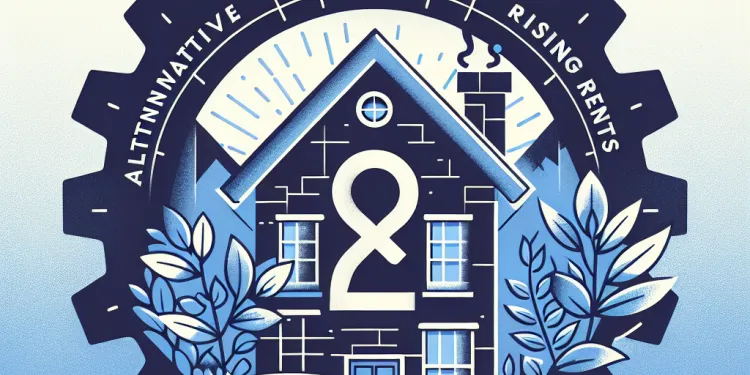
What alternative solutions are being discussed to combat rising rents?
Relevance: 39%
-

What changes affect pet policies in rented homes?
Relevance: 37%
-

How are rent increases regulated under the new law?
Relevance: 37%
-

Can the payment be used for any expenses?
Relevance: 36%
-

What new protections are included for tenants?
Relevance: 36%
-
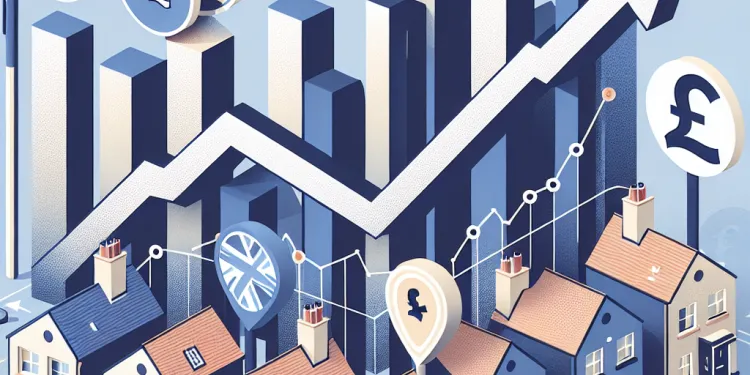
How does inflation affect the situation with housing benefits and rents?
Relevance: 35%
-
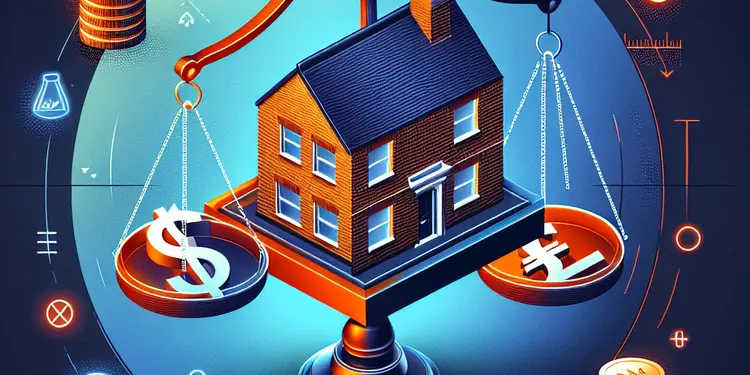
How are landlord-tenant issues resolved in property litigation?
Relevance: 35%
-
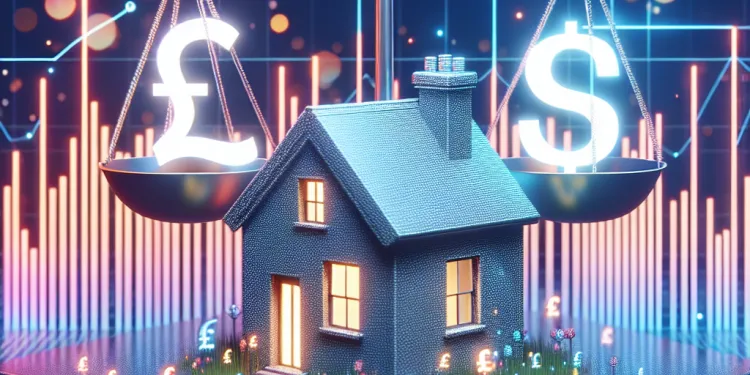
What are the new Tenancy Law Reforms in the UK in 2025?
Relevance: 35%
-

Can I receive this payment alongside other cost of living payments?
Relevance: 32%
-
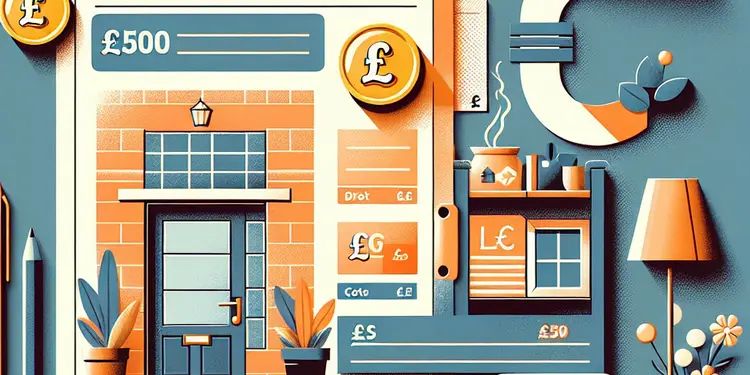
What is the £500 cost of living payment?
Relevance: 30%
-
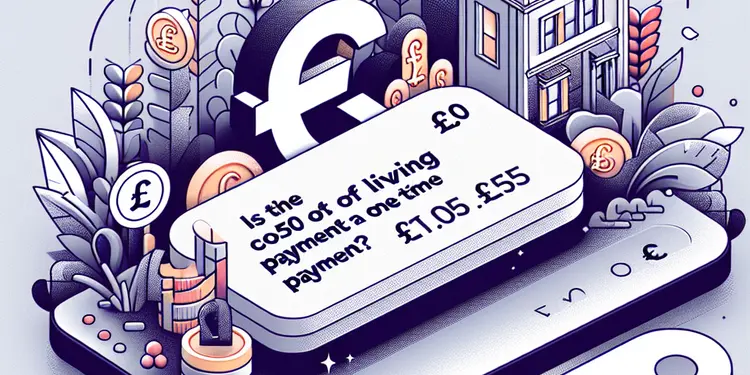
Is the £500 cost of living payment a one-time payment?
Relevance: 29%
Understanding Eviction in the UK
Eviction in the UK is a legal process that landlords can use to regain possession of their property from tenants. It typically arises when tenants fail to meet the terms of their tenancy agreement, often due to rent arrears. However, if you're facing eviction because of missed rent payments, you might wonder if paying the arrears can stop the eviction process.
Types of Tenancies and Eviction Notices
In the UK, the type of tenancy you have can affect how eviction proceedings are handled. The two most common forms of tenancies are Assured Shorthold Tenancies (AST) and Assured Tenancies. For ASTs, landlords can issue a Section 21 or a Section 8 notice to begin eviction. A Section 21 notice doesn't require a reason for eviction, but a Section 8 notice can be issued when tenants breach the tenancy terms, such as failing to pay rent.
Stopping Eviction Through Rent Repayment
Whether catching up on rent arrears can halt an eviction largely depends on the type of notice served and the stage of the eviction process. If a Section 21 notice has been issued, catching up on payments may not necessarily stop the eviction, as this notice can be used for no-fault evictions. However, for a Section 8 notice, which is specifically related to rent arrears, clearing the debt can influence the outcome.
If the landlord has taken you to court under Section 8 for rent arrears, you may have a defense if you can pay off the arrears before the court hearing. Judges in the UK have the discretion to grant tenants time to catch up on payments, especially if the arrears situation was caused by extenuating circumstances and you can demonstrate the ability to keep up with future payments.
Further Action and Legal Assistance
Even if you can pay the arrears, it’s important to communicate openly with your landlord to see if an agreement can be reached before the situation escalates to court. Furthermore, tenants are advised to seek legal advice to understand their rights and any possible defenses against eviction. Organisations such as Shelter or Citizens Advice can provide valuable guidance and support.
If you are unable to resolve the issue through direct negotiation or by repaying the arrears, attending any court hearings is crucial. Failing to attend might result in a court order for eviction even if you are in the process of settling the debt.
Preventing Future Arrears
Once you have addressed your current rent arrears, it's crucial to prevent similar situations in the future. Budgeting and seeking assistance for any benefits you're entitled to can help manage rent payments effectively. Moreover, maintaining open communication with your landlord about any financial issues gives you a better chance of negotiating new terms before arrears build up.
Understanding Eviction in the UK
Eviction is when a landlord asks a tenant to leave their home. This happens if a tenant breaks the rules of their rental agreement. Often, this is because of unpaid rent. If you are worried about eviction because of missed rent, you might wonder if paying it back can stop the eviction.
Types of Tenancies and Eviction Notices
In the UK, there are different types of rental agreements. The type you have will affect the eviction process. The two most common types are Assured Shorthold Tenancies (AST) and Assured Tenancies. For ASTs, landlords can use a Section 21 or a Section 8 notice to start eviction. Section 21 doesn't need a reason. Section 8 is used if a tenant breaks the rules, like not paying rent.
Stopping Eviction Through Rent Repayment
If you catch up on your rent, it might stop eviction. It depends on what kind of notice is given and how far along the eviction is. With a Section 21 notice, paying rent might not stop eviction. But with a Section 8 notice for unpaid rent, paying what you owe can help. If your landlord takes you to court for unpaid rent, you might have a chance if you pay before the court day. Judges can give you more time to pay if you show you can keep up with rent in the future.
Further Action and Legal Assistance
If you can pay the rent, talk to your landlord to try and agree on a solution before going to court. It’s also important to get legal advice to know your rights. Groups like Shelter or Citizens Advice can help you. If you cannot fix the issue by talking or paying, you must attend any court hearings. Not going to court can lead to eviction.
Preventing Future Arrears
Once your rent is up to date, it's important to avoid future problems. Make a budget to manage your money. Ask for any benefits you can get. Talk to your landlord if money is tight. This can help work things out before rent is late again.
Frequently Asked Questions
Can I stop an eviction if I pay the full amount of overdue rent?
In some cases, yes. If the landlord has only filed for eviction due to non-payment of rent, paying the overdue amount may halt the eviction process. However, it depends on state laws and the timing of your payment.
What happens if I pay my overdue rent after receiving an eviction notice?
Paying overdue rent after receiving an eviction notice might stop the eviction process, but it depends on your state's laws and whether the landlord is willing to accept the payment as a resolution.
Do I need a legal agreement to stop eviction after paying overdue rent?
It is advisable to obtain a written agreement from your landlord confirming that the eviction will be stopped post-payment to protect your rights.
Can a landlord refuse rent payment after starting the eviction process?
Yes, landlords can sometimes refuse rent payments if they are intent on completing the eviction process, depending on local laws.
Will paying overdue rent always stop an eviction?
Not always. If the eviction is due to other violations, such as lease breaches or damages, simply paying overdue rent may not prevent eviction.
What is a pay-to-stay law?
Pay-to-stay laws allow tenants to stop an eviction by paying overdue rent and any late fees before the eviction is finalized, but such laws vary by location.
Is there a deadline to pay overdue rent to stop eviction?
The deadline to pay overdue rent can vary. It often needs to be paid before the eviction judgment, but local laws and lease terms are crucial to understand.
What should I do if the landlord refuses my rent payment during eviction?
If your landlord refuses rent payment, consider seeking legal advice to understand your rights and possibly challenge the eviction in court.
Can partial payment of overdue rent stop an eviction?
Partial payment may only stop eviction if the landlord and local laws permit it. Often, full payment of overdue rent is required.
How quickly should I act to stop eviction by paying overdue rent?
Act as quickly as possible and before any legal deadlines established by eviction notices or state laws to increase your chances of stopping the eviction.
Can I negotiate more time to pay overdue rent and stop eviction?
You can try negotiating with your landlord for more time to pay, but it's at their discretion whether to accept this arrangement.
Does paying rent in full include late fees to stop eviction?
Often, yes. Paying all overdue rent plus any applicable late fees is required to potentially stop an eviction.
Can I stop an eviction by paying overdue rent after a court order?
After a court order, stopping eviction may be more difficult and require legal intervention. Consult with a legal expert immediately.
Are there assistance programs to help pay overdue rent and stop eviction?
Yes, many local government and non-profit programs offer assistance for rent payments to help prevent eviction. Look for resources in your area.
What documentation should I keep when trying to stop eviction by paying overdue rent?
Keep records of payments, communication with the landlord, and written agreements to provide proof in case of disputes.
Is court intervention necessary to stop an eviction after paying rent?
If the landlord continues with eviction, you may need to seek court intervention or legal advice, even after paying overdue rent.
Can rent assistance stop an eviction in progress?
Rent assistance can potentially stop an eviction if it covers the overdue amount before legal deadlines, depending on landlord cooperation.
What are my rights if I believe I'm being wrongfully evicted after paying overdue rent?
Consult with a local housing attorney or tenant's rights organization to understand your legal options and potentially dispute the eviction.
Does the reason for overdue rent affect my ability to stop an eviction?
Possibly. While the payment's timeliness is crucial, some landlords may consider circumstances leading to overdue rent, but it largely depends on legal obligations.
Can I stop eviction if rent payment delays are due to COVID-19 hardships?
Some jurisdictions have specific protections for COVID-19 hardships, allowing tenants to halt evictions if they demonstrate financial impact and pay overdue rent. Check local regulations.
Can I stop being evicted if I pay all the rent I owe?
Sometimes, yes. If you have not paid rent and the landlord wants you to leave, you might stop this by paying the money you owe. But, it depends on the rules where you live and when you pay.
What if I pay my late rent after getting an eviction letter?
If you owe rent and get a letter saying you might have to leave your home, paying what you owe could help. But it depends on the rules where you live and if your landlord agrees.
Do I need a legal paper to stay in my home after paying late rent?
Ask your landlord to write down that they will stop the eviction after you pay. This will help keep you safe.
Can a landlord say no to rent after beginning the eviction?
Here is what this means:
If the landlord wants you to leave, they might start something called an "eviction process." This means they are asking you to move out.
Sometimes, landlords do not want to take rent money during this time. It is important to talk to someone who knows about these things, like a housing advisor, to understand what you can do.
Here are some tools that might help you:
- Ask a friend or family member to help explain it.
- Use pictures to understand better.
- Look for videos online that talk about this topic.
Sometimes, landlords can say "no" to taking rent money if they want to make you leave the house. This can be different based on where you live.
Will paying late rent always stop being kicked out?
Sometimes paying late rent can stop you from being kicked out. But it doesn't always work. You might still have to leave.
Here are some things that can help:
- Ask someone you trust for advice.
- Talk to your landlord and explain your situation.
- Get help from a support group.
Remember, it's important to try to pay your rent on time.
Not all the time. If you are being asked to leave your home because you broke the rules or caused damage, just paying the late rent might not stop the eviction.
What is a pay-to-stay law?
A pay-to-stay law is a rule about money and rent. If you live in a house and can't pay rent, this law might help you stay. It means you can pay what you owe to keep living there. Ask someone you trust for help to understand this law better, like a family member or a friend.
Pay-to-stay laws help people who rent homes. They say you can stop being kicked out if you pay any rent you owe and extra fees before the eviction is finished. These laws are different in each place.
If you find reading hard, tools can help. You could try using an app that reads text aloud or a dictionary to explain words. It can be useful to ask someone you trust to help you understand better.
Do I have a last date to pay rent I owe to not get kicked out?
The last day to pay rent you owe can be different in each place. You usually have to pay before a judge makes a decision about being kicked out of your home. It's important to know the rules where you live and what your rental agreement says.
What can I do if my landlord won't take my rent during eviction?
If your landlord will not take your rent money, you can talk to a lawyer. They can help you know what your rights are. They might also help you go to court if your landlord wants you to move out.
If I pay some of the rent I owe, will I have to leave my home?
Giving part of the rent money might stop you from being kicked out, but only if the landlord and local rules say so. Most of the time, you need to pay all the rent you owe to stay.
How fast should I pay my rent to not be kicked out?
Try to act fast. Do this before the time runs out on any letters or rules about moving out. This will help you to stop getting kicked out of your home.
Can I ask for more time to pay rent and stay in my home?
You can ask your landlord if you can have more time to pay. But it is up to them if they say yes or no.
If I pay all the rent, does it stop eviction even with late fees?
If you pay all the rent you owe, will it stop you from being evicted even if there are late fees?
Here are some tips to help:
- Ask your landlord if paying the full rent will stop eviction.
- Check if there are extra late fees you need to pay.
- Use a calendar to track when rent is due.
- Ask someone you trust to help you understand your rental agreement.
Yes, if you have not paid rent, you might have to pay all the rent you owe and any extra fees for paying late to avoid being evicted.
Can I stop being evicted by paying late rent after a court says so?
After a court says you have to leave your home, it can be harder to stop. You will need a lawyer to help you. Talk to a lawyer right away.
Can I get help to pay rent I owe and stop being made to leave my home?
Yes, there are programs that can help you pay your rent. These are run by local government and non-profit groups. They stop people from losing their homes. You can find help in your area.
What papers do I need to keep if I want to stop being evicted by paying late rent?
Write down when you pay, talk, or make agreements with your landlord. This way, if there is a problem, you have proof to show what happened.
Do you need to go to court to stop being kicked out after paying rent?
If the landlord still wants you to leave, you might need to ask a judge for help or talk to a lawyer. This could happen even if you have paid the rent you owed.
Can help with rent stop an eviction?
Rent help can sometimes stop someone from losing their home. This can happen if the rent help pays for all the rent owed before it's too late. It also depends on the landlord agreeing.
What can I do if I think I'm being unfairly kicked out after paying my late rent?
If you think you are being kicked out of your home and it's not fair, here are some things you can do:
- Talk to a grown-up you trust about what's happening. They might be able to help.
- Ask for help from a person who knows the rules about houses, like a lawyer.
- Write down everything that happens. This helps you remember all the details.
- Look for groups that help people with housing problems. They might have good advice.
These steps can help you understand what to do next.
Talk to a local lawyer who knows about housing, or a group that helps people who rent. They can help you understand what you can do if you don’t want to move out.
Can the reason I didn't pay rent on time stop me from being evicted?
Maybe. It is important to pay rent on time. But sometimes, if you are late, your landlord might understand. It depends on the rules and the landlord.
Can I stop being evicted if I am late paying rent because of COVID-19 problems?
If you are having trouble paying rent because of COVID-19, you might be able to stop an eviction.
Here are some steps you can take:
- Talk to your landlord. Explain your situation.
- Check local laws to see if there are protections for people who can't pay rent because of COVID-19.
- Look for information on government help for rent payments.
- Ask a friend or family member to help you understand what you can do.
- Think about speaking to a legal advisor for advice.
Using tools like a calendar or reminders can help you keep track of what you need to do.
In some places, there are special rules to protect people who have money problems because of COVID-19. These rules can help you stay in your home if you can't pay rent. You need to show how COVID-19 affected your money and pay any rent you owe. Look up the rules where you live to find out more.
Useful Links
This website offers general information and is not a substitute for professional advice.
Always seek guidance from qualified professionals.
If you have any medical concerns or need urgent help, contact a healthcare professional or emergency services immediately.
Some of this content was generated with AI assistance. We’ve done our best to keep it accurate, helpful, and human-friendly.
- Ergsy carfully checks the information in the videos we provide here.
- Videos shown by Youtube after a video has completed, have NOT been reviewed by ERGSY.
- To view, click the arrow in centre of video.
- Most of the videos you find here will have subtitles and/or closed captions available.
- You may need to turn these on, and choose your preferred language.
- Go to the video you'd like to watch.
- If closed captions (CC) are available, settings will be visible on the bottom right of the video player.
- To turn on Captions, click settings .
- To turn off Captions, click settings again.
More Items From Ergsy search
-

Can I stop an eviction if I catch up on rent payments?
Relevance: 100%
-

Is there assistance available for rent or mortgage payments?
Relevance: 66%
-

Can I negotiate with my landlord to avoid eviction?
Relevance: 62%
-

What can I do if my landlord wants to evict me?
Relevance: 61%
-

Can eviction affect my credit score?
Relevance: 60%
-

How can I contest or challenge the eviction?
Relevance: 59%
-

What should I do if I receive an eviction notice from my landlord?
Relevance: 58%
-

Does filing for bankruptcy stop an eviction?
Relevance: 58%
-

Are there changes to the eviction process?
Relevance: 57%
-

Are there any government programs that can help me avoid eviction?
Relevance: 57%
-

What are the consequences of having an eviction on my record?
Relevance: 56%
-

How can I prepare for an eviction court hearing?
Relevance: 54%
-

What are my rights during the eviction process?
Relevance: 50%
-

Can a landlord evict me for complaining about property conditions?
Relevance: 49%
-

How does the reform impact renting costs?
Relevance: 48%
-

How long do I have to move out after receiving an eviction notice?
Relevance: 47%
-

What can I do if I believe my eviction is retaliatory?
Relevance: 46%
-

What is the relationship between rising rents and housing benefit cuts?
Relevance: 45%
-

What happens if I stay beyond the eviction deadline?
Relevance: 45%
-

What should I do if I can't afford a lawyer for the eviction process?
Relevance: 45%
-

Can my landlord evict me without providing a reason?
Relevance: 44%
-

Is mediation an option to resolve eviction disputes?
Relevance: 42%
-

Can mobility equipment be rented?
Relevance: 42%
-

How do I find alternative housing quickly if evicted?
Relevance: 41%
-

Has the notice period for eviction changed?
Relevance: 41%
-

Can I appeal a court's eviction decision?
Relevance: 41%
-

What can tenants do if they are affected by the cuts?
Relevance: 40%
-

What are the proposed Cuts to Housing Benefits Amid Rising Rents?
Relevance: 40%
-

Can a landlord lock me out or remove my belongings to evict me?
Relevance: 39%
-

What alternative solutions are being discussed to combat rising rents?
Relevance: 39%
-

What changes affect pet policies in rented homes?
Relevance: 37%
-

How are rent increases regulated under the new law?
Relevance: 37%
-

Can the payment be used for any expenses?
Relevance: 36%
-

What new protections are included for tenants?
Relevance: 36%
-

How does inflation affect the situation with housing benefits and rents?
Relevance: 35%
-

How are landlord-tenant issues resolved in property litigation?
Relevance: 35%
-

What are the new Tenancy Law Reforms in the UK in 2025?
Relevance: 35%
-

Can I receive this payment alongside other cost of living payments?
Relevance: 32%
-

What is the £500 cost of living payment?
Relevance: 30%
-

Is the £500 cost of living payment a one-time payment?
Relevance: 29%


